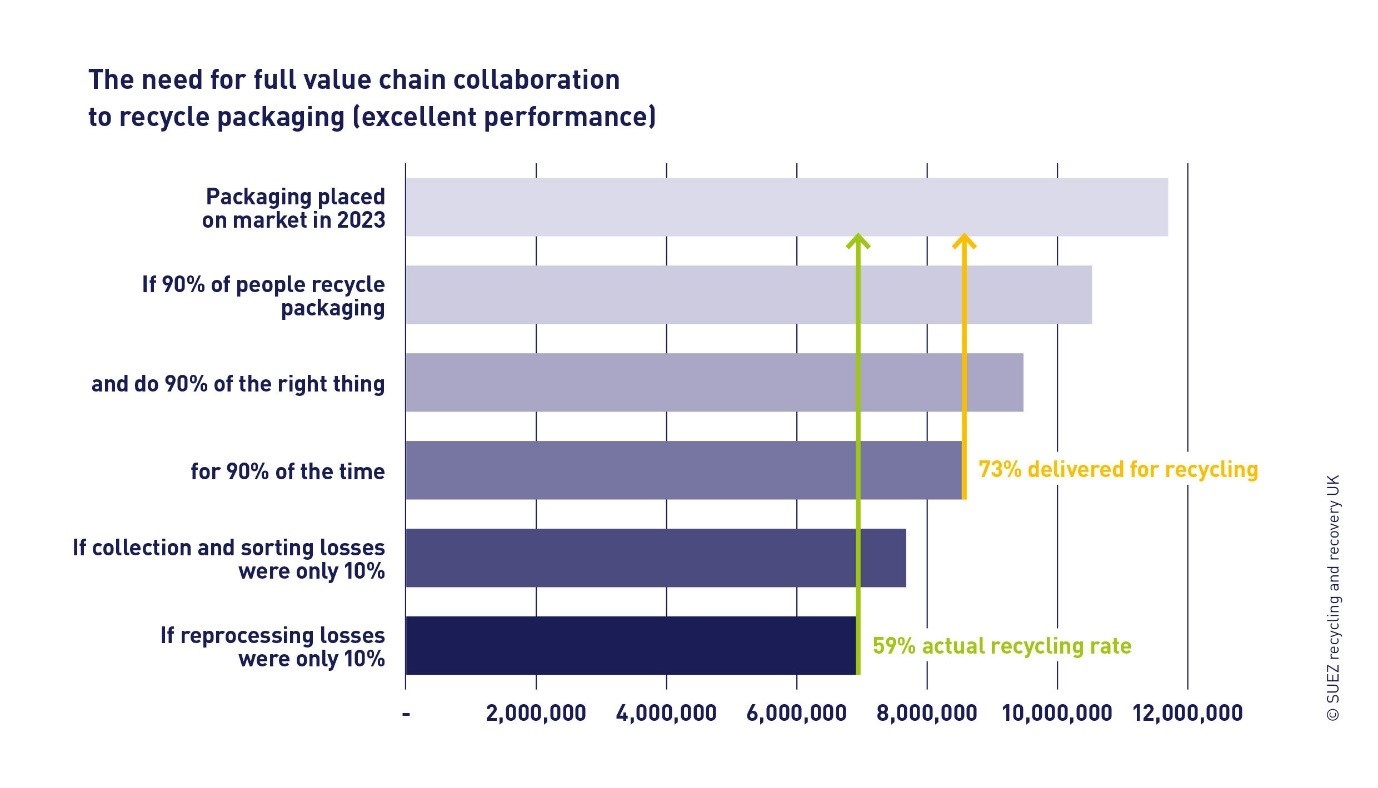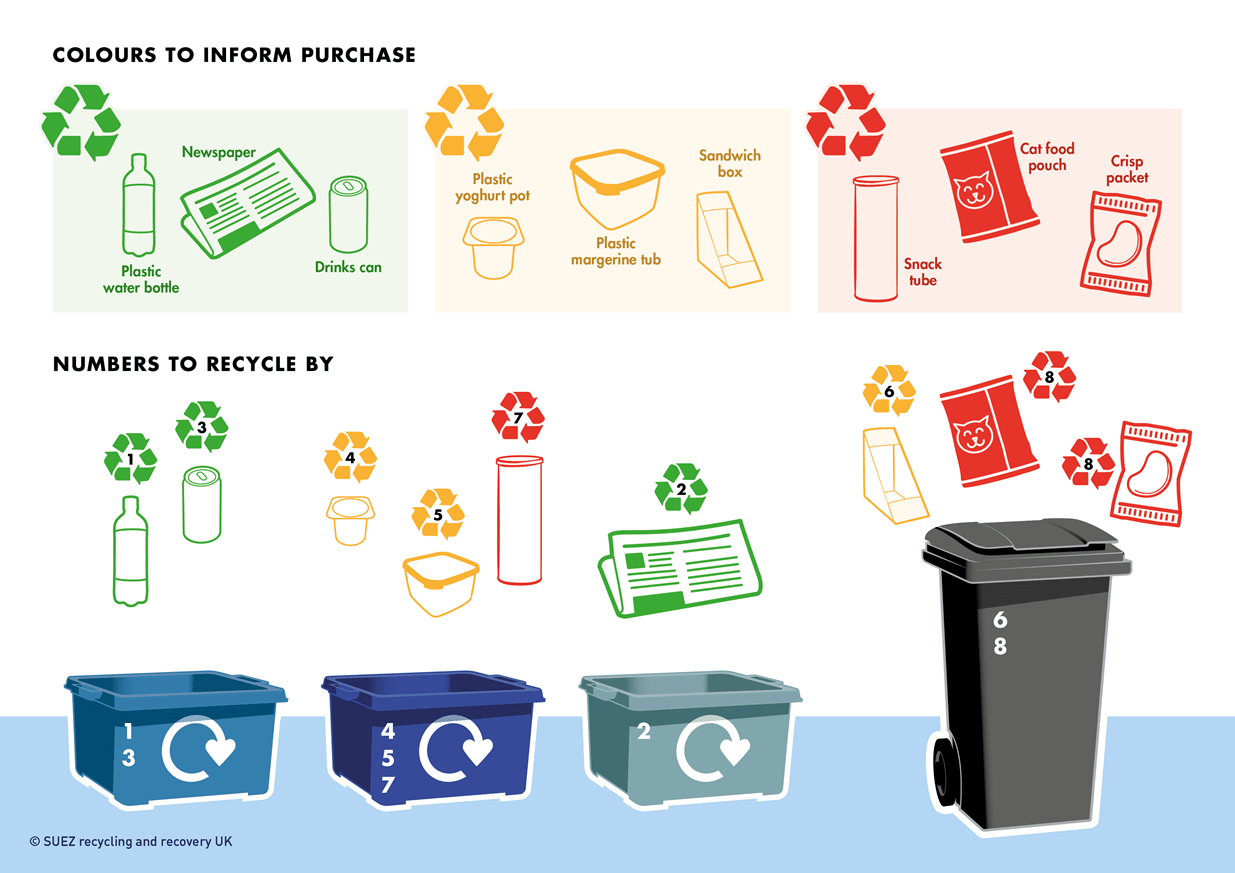The waste and resources strategy: excellence through habit
7th May 2019
My job gives me the opportunity to travel the length and breadth of this country. I love the differences I observe, from the local accents to the scenery, to the crowds in busy places and the solitude of the quite ones. People and places are different and when it comes to waste and recycling we need to recognise those differences and work with them.
In the four consultations that are starting to come to a close, Defra is seeking opinions on aspects of:
- extended producer responsibility (EPR)
- deposit return schemes (DRS)
- consistency and methods of collection of waste
- tax on plastic packaging that does not contain a minimum of 30% recycled content.
There is a common theme in those consultations, trying to give common messages, common services and more aligned products and systems to try and help recycle more materials.
Will Durant famously summed up Aristotle’s thoughts saying that “We are what we repeatedly do. Excellence, then, is not an act, but a habit”. I think we all agree, that habit is important, and that more aligned messages, collection systems, labelling and products will help drive forward the habit of recycling. But habits are built through repetitive triggers, action and reward and will only start if we invest in the right things and create systems that are universally convenient and respect the differences of people and place.
At SUEZ we use the term ‘DNA’ to help describe the differences between one local authority and another, from how urban or rural they are to the age profile of the residents to the housing mix (flats, houses, owned or rented) through to their relative deprivation and other factors. People’s purchasing habits are different, and are influenced by different places and their Lifestyles. Some households may have more space than others. Homeowners might have more time or less than each other to spend on recycling. We see this reflecting in the ease and ability of each local authority to achieve recycling targets. Similar concepts apply to businesses where those on high streets, industrial estates or shopping centres will have different opportunities and constraints in how they produce and manage their wastes.
So what if we’re different? Well if the policy interventions are to be fair and equitable and deliver the increases in recycling and waste reduction then the targets, funding, recycling collection systems and communications need to be coordinated, compounding and correctly focussed.
Starting on communications is vitally important. Getting common messages and triggers to consumers, both in the home and the workplace is absolutely essential to success. If we want to achieve over 60% recycling, then the most important part is the people and habit part. The diagram below clearly shows the importance of this element, if we don’t get 90% of the people and business, doing 90% of the right things 90% of the time then we cannot get enough material into the recycling systems to even get close to the targets.

Part of this process of communication and coordination will be on pack labelling that links the product to the bin and collection service. Government in their consultations is focussing on common systems of collections, bin styles/colours and on pack labelling. These all have opportunities to improve the current performance but we wonder if they can do enough.
At SUEZ, when we ran our four workshops in 2018 with members of the public in four different regions of the country, each with a different ‘DNA’, one common message from all of those workshops was “tell us if it’s recyclable” and also “tell us which bin to put it into”. Each of these different sets of people, young or old, rich or poor didn’t asked us about bin colours or collection systems, but they did ask about products and bins and why certain materials were recyclable in some places and not others. They did comment about not having enough bins, or the rights bins and were asking why systems were not convenient for their housing type (flat, terrace etc.).
So although we welcome the consistent collection of key materials for recycling and support constraints on how different materials are collected in order to maintain quality and maximise the recycling efforts, we are not convinced that spending hundreds of millions of pounds on bin changes or forcing different authorities with different needs and constraints into a very small number of regimented bin collection styles will deliver the convenience levels and ultimately habits necessary to achieve excellent recycling rates. What we were told and learnt from the customer workshops was that ‘recycling by numbers’ rather than bin style or colour was the system most favoured. Imagine a system where each plastic bottle has a number printed inside the current recycling logo on the existing label that matched a number on the bin outside your house, or in your local park or in the hotel or chalet on holiday and all you needed to do was to match the number on the item (say No 1 for all plastic bottles, No 2 for all metal containers etc.) with the number on the bin. Creating a habit about recycling by numbers can be far more universal in its application and really answer that core question we are asked again and again- is it recyclable and which bin do I put it in?
After the workshops we pulled an example graphic together, to show how ‘recycling by number’ could work and this is presented below.

So when responding to the consultations, when your focussing on the detail of the question being asked, take some time to stop and ask yourself a question. Will this, in coordination and association with all the other actions help 90% of people and businesses do 90% of the right things, 90% of the time, so that we have less than 10% losses in the sorting and refining processes and get over that 60% average target. Then ask the question, which habit will drive the waste minimisation processes that will help get the recycling rate up to an average of 65% by reducing waste that cannot be recycled.
Tweet- Deposit Return Scheme
- DRS
- EPR
- Extended Producer Responsibility
- recycling and waste management
- recycling by numbers
- Waste consultation
